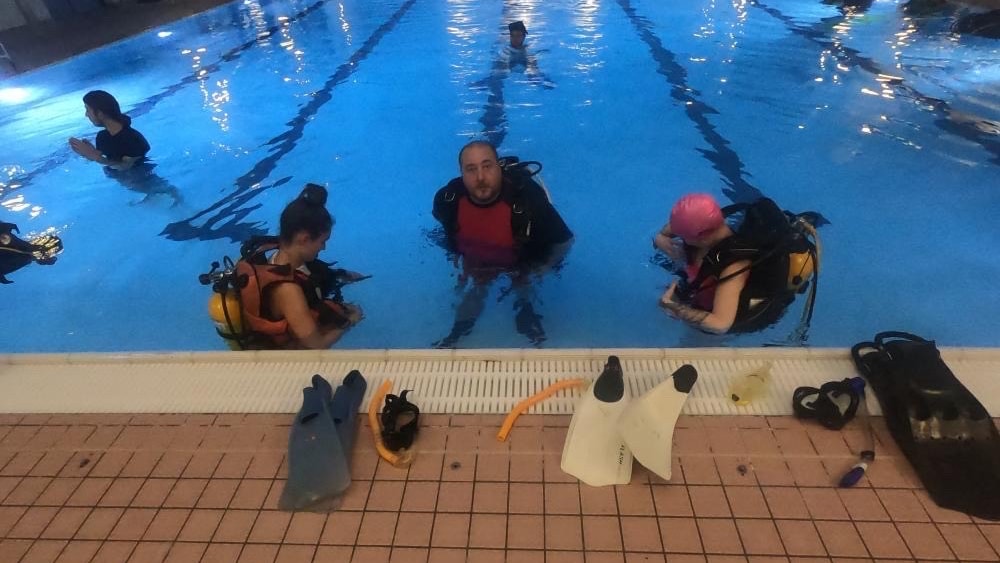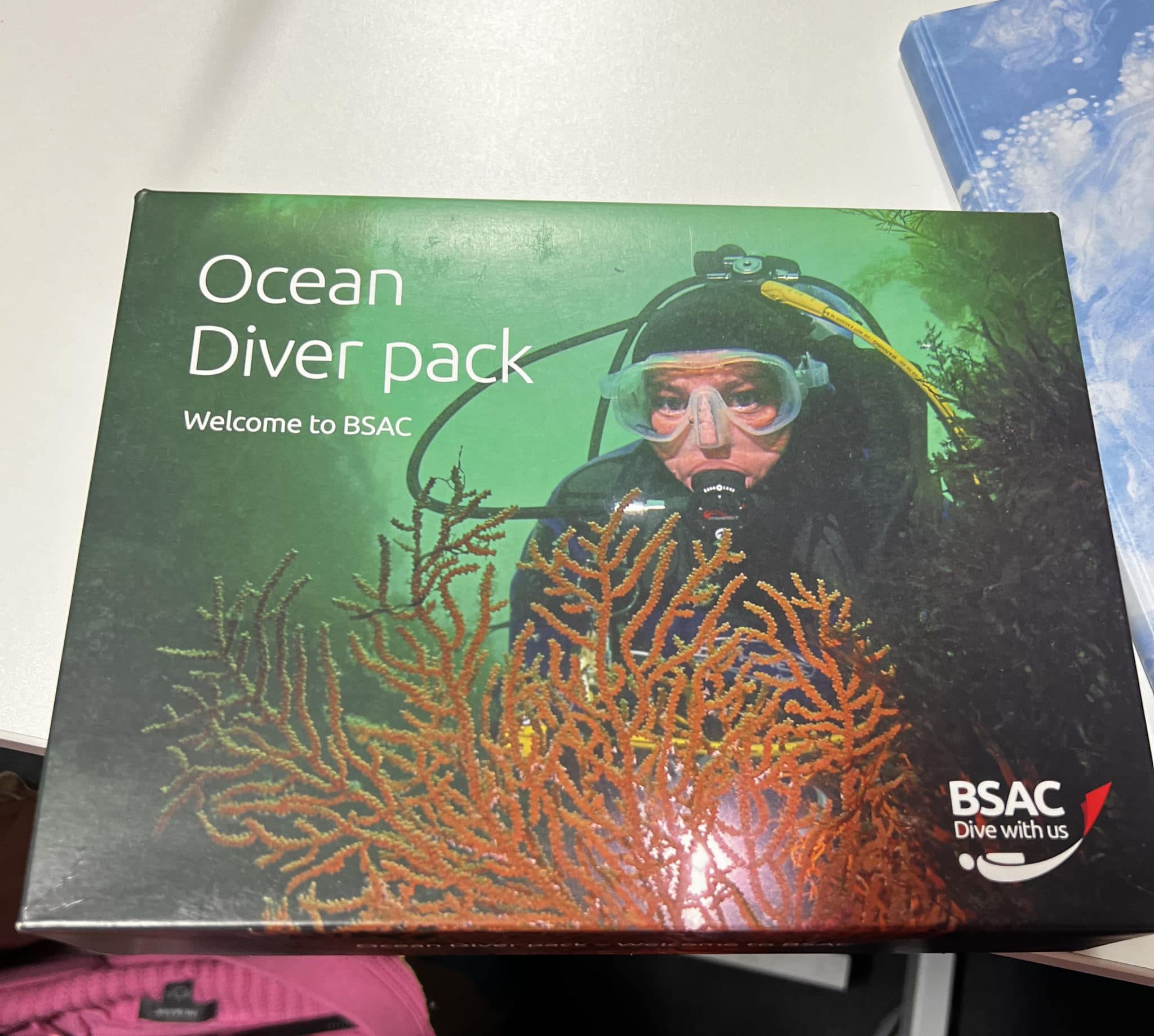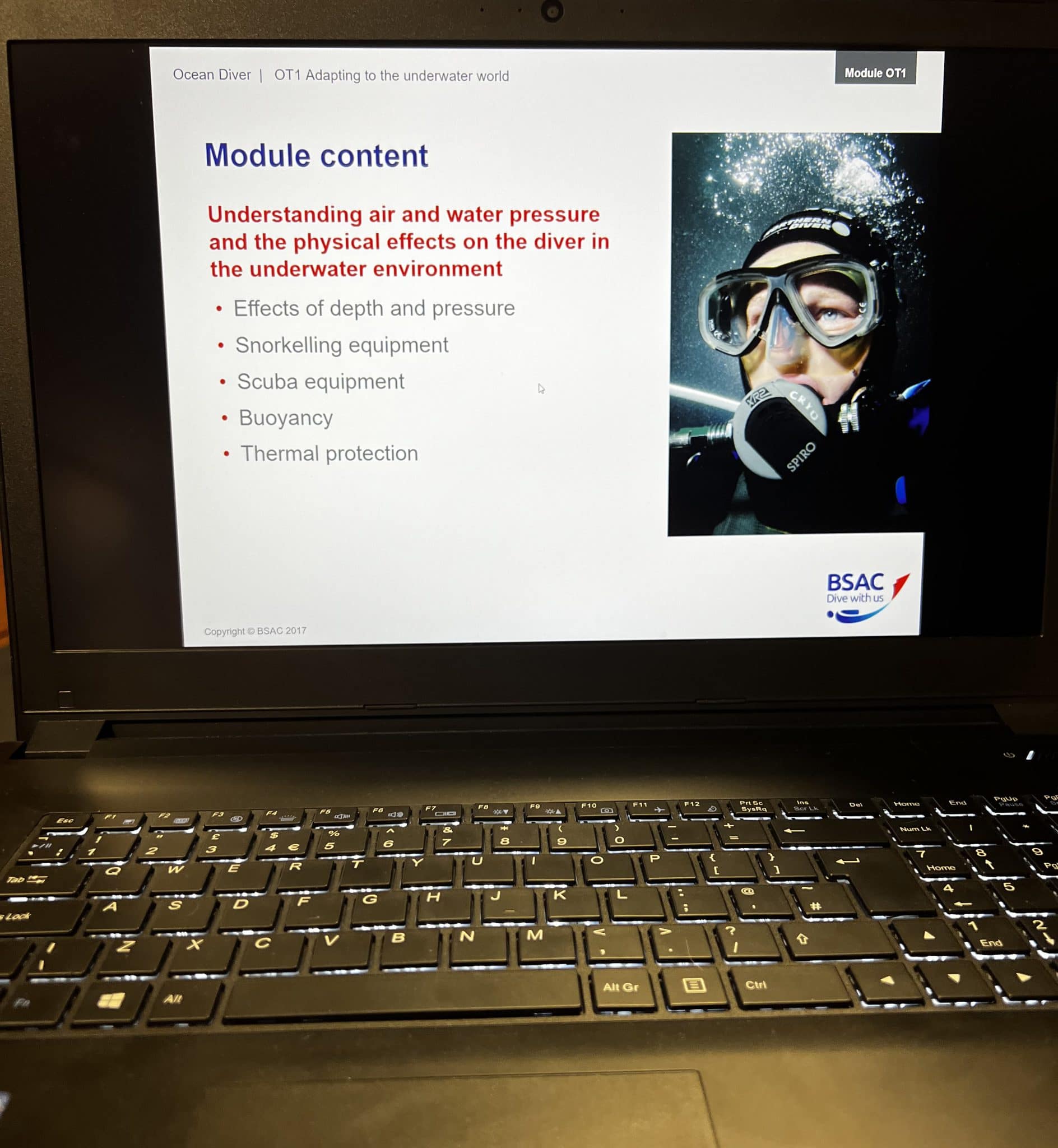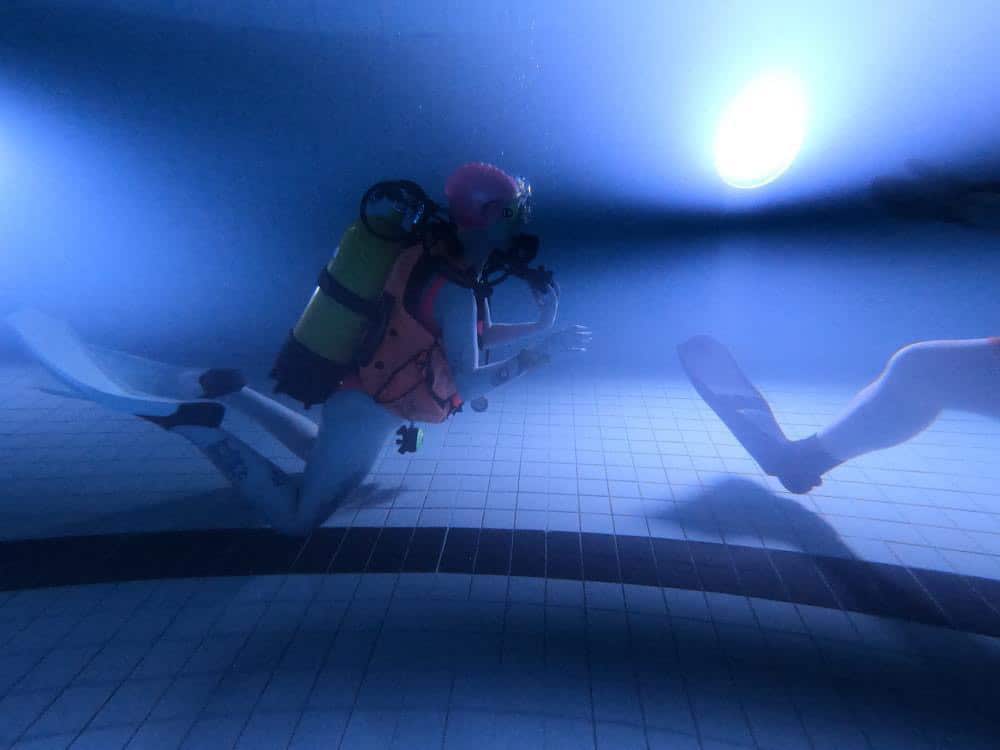Dive Training Blogs
Diving Diaries (Part 1)

In this new series Scubaverse blogger, Isobel Fairbairn, keeps a diary as she learns to dive with her university BSAC club (Salford University Diving Society or SUDS for short). Follow her progress as she heads underwater for the very first time.
Week 1 (March 2nd 2022)
Honestly I feel as if overwhelming would be an understatement. From two hours of information in a theory class to be then plunged underwater carrying tanks on my back (which, by the way, is extremely difficult when you’re 5’3 and fairly small, why I didn’t prepare myself for this I have no idea, but I didn’t, thought I was going to die, or at least end up staying on my back for the entire two hours)…
To begin with: a theory full of air pressures, atmospheric pressures, cleaning kit, breathing (I thought I knew how to do this?) valves, how not to die or be seriously injured, and how to tell if someone is, well, going in that direction. It was a lot to take in, it did make sense in the end, and, of course is all completely necessary, but wow, way to be slightly off-putting I guess.
Now, getting into the water for the first time was a different situation altogether. As a human being I did not realise how difficult it was to simply find the perfect level of air to stay buoyant at, on top of managing to be stuck with the wrong size BC, so swimming around with the equivalent of an oversized, heavy life jacket on did not tick all my boxes to begin with. I had some weights added to me to stop me from looking like a sunfish as I floated to the surface of the pool, and then I learnt how to breathe – unsurprisingly, a foreign concept when you’re submerged underwater, yet, quite easy to get the hang of! Luckily I did not get into the habit of trying to hold my breath while I was underwater so that was excellent.
Once air had been obtained into my lungs at a continuous flow, we stood in the shallow end and bobbed in and out of the water, going from learning to kneel down to stand up again, and learnt some hand signals (the usual “okay”, “up”, “down” “you watch me” “stop”). We then practiced getting used to those while sat on our knees so we could properly communicate with one another.
Once that was done, we took our first proper swim down to the middle of the pool. Now managing flippers, a BC, big air tanks and remembering to breathe while swimming was a lot for those first few seconds, but that quickly went away when I stopped feeling like a fish out of water (or a human IN water). I pushed through and carried on, and it felt great! It was cool to be able to just swim along, not having to worry about coming up for air, getting the hang of carrying around my newest summer accessory, the metal canister backpack. When we got to the deeper area of the pool, I could suddenly FEEL my ears though. I’m not too sure they agreed with being borderline face down on the bottom of a pool floor, but I had learnt how to clear them so after a while I was okay, you can’t please everyone I guess (sorry ear canals).
Check back for Part Two next week!
Blogs
PADI Recognises EMEA Members with New Professional Development Excellence Award

PADI® (Professional Association of Diving Instructors®) has recently launched their new Professional Development Excellence Award in EMEA (Europe, Middle East and Africa), celebrating PADI Five Star Instructor Development Centers (IDC) that are championing creating more PADI Professionals, at all levels, during the previous calendar year.
“While becoming a PADI Five Star IDC Center is a prized accreditation amongst members, this exclusive rating comes with the responsibility of training the next generation of divers to become PADI Instructors,” explains Dave Murray, Managing Director for PADI EMEA.
“PADI’s commitment to a continuing education philosophy encourages divers to realise their dreams of a career as a PADI Pro, teaching others to do what they love – to scuba dive. This new recognition award distinguishes productive PADI Five Star IDC stores for the time and effort they dedicate to marketing and conducting the professional training needed to grow the scuba diving industry.”
PADI’s EMEA Professional Development Excellence Award recognises members for reaching specific milestones based on the number of PADI Pro certifications they issue annually. It also provides an extra layer of credentials in their “Pro Development Status” to potential Divemaster and IDC candidates, along with any other prospective Pro-level customers and prospective employees.
The first awards were distributed earlier this year, with 12 PADI Five Star IDC Centers receiving the Platinum Award. This means that they have issued a minimum of 100 PADI Professional certifications from Divemaster to IDC Staff Instructor, which include 30 Core Professional certifications and 70 Continuing Education Instructor level certifications.

The 2025 PADI EMEA Professional Development Excellence Award is already underway and renewed PADI EMEA Five Star IDC Dive Centers and Resorts are automatically eligible. Stores that reach the recognition levels during 2024 will receive their award in the first quarter of 2025.
For more information about the award and to see the full list of award recipients visit here.
About PADI
PADI® (Professional Association of Diving Instructors®) is the largest purpose-driven diving organization with a global network of 6,600 dive centers and resorts, 128,000 professional members, and more than 30 million certified divers to date. Committed to our blue planet, PADI makes the wonder of the underwater world accessible to all, empowering people around the world to experience, explore and take meaningful action, as Ocean TorchbearersTM, to protect the world beneath the surface. For over 50 years, PADI is undeniably The Way the World Learns to Dive®, setting the standard for the highest quality dive training, underwater safety and conservation initiatives while evolving the sport of diving into a passionate lifestyle. For divers by divers, PADI is obsessed with transforming lives and, with its global foundation, PADI AWARETM, creating positive ocean change. Seek Adventure. Save the Ocean.SM www.padi.com
Blogs
Two great programs to thrill and excite from RAID

RAID’s Performance Diver program is part of the training agency’s unique ‘tune-up’ options for divers at all levels, from basic to technical. Its appeal to newer divers who did not get all they wanted from their open water course (perhaps with a non-RAID dive centre) has always been strong. But it’s a winning option for someone who has been inactive for a while as well.
The skills taught in this course have been designed by some of the most respected dive professionals in the industry. They have condensed years of in-water experience into a great program that’s fuelled by great ideas and solid knowledge. Something useful in all sorts of conditions and all sorts of gear configurations. In short, a range of skills you will use on every dive: buoyancy, trim, situational awareness, gear selection and management, contingency planning… having fun and staying safe.
You can find out more about RAID’s Performance Diver program here.
And with the agency’s renewed focus in 2024 on breath-hold programs, July is a good time to read about the benefits of RAID’s range of Freediving courses.
Freediving is such an exhilarating and beautiful sport that allows you to connect with the underwater world in a unique way.
The thrill of diving deep down, holding your breath, and exploring the depths with just a single breath is truly an unforgettable experience.
It requires focus, control, and a deep respect for the ocean. The sense of freedom and tranquility you can find while freediving is unlike any other.
Have you ever tried freediving or are you interested in learning more about it? You do not have to be a scuba diver to start… not at all!
And if you are already a diver, RAID can help you discover a whole new way to look at a familiar world.
You can find out more about RAID’s Freediving courses here.
To find out more about RAID and the agency’s diver training programs, visit diveraid.com.
-

 Blogs2 months ago
Blogs2 months agoDiving With… Nico, Ocean Earth Travels, Indonesia
-

 News1 month ago
News1 month agoMurex Bangka Announce New Oceanfront Cottages & Beachfront Dining
-

 Blogs2 months ago
Blogs2 months agoA new idea in freediving from RAID
-

 Marine Life & Conservation1 month ago
Marine Life & Conservation1 month agoIceland issue millionaire whale hunter a licence to murder 128 vulnerable fin whales
-

 Marine Life & Conservation2 months ago
Marine Life & Conservation2 months agoThe Shark Trust Great Shark Snapshot is back
-

 News3 months ago
News3 months agoCharting New Waters; NovoScuba Goes Global with the Launch of their Revolutionary Dive Training Agency!
-

 Gear News1 month ago
Gear News1 month agoNew Suunto Ocean – a dive computer and GPS sports watch in one for adventures below and above the surface
-

 Marine Life & Conservation Blogs2 months ago
Marine Life & Conservation Blogs2 months agoBook Review: Plankton


















